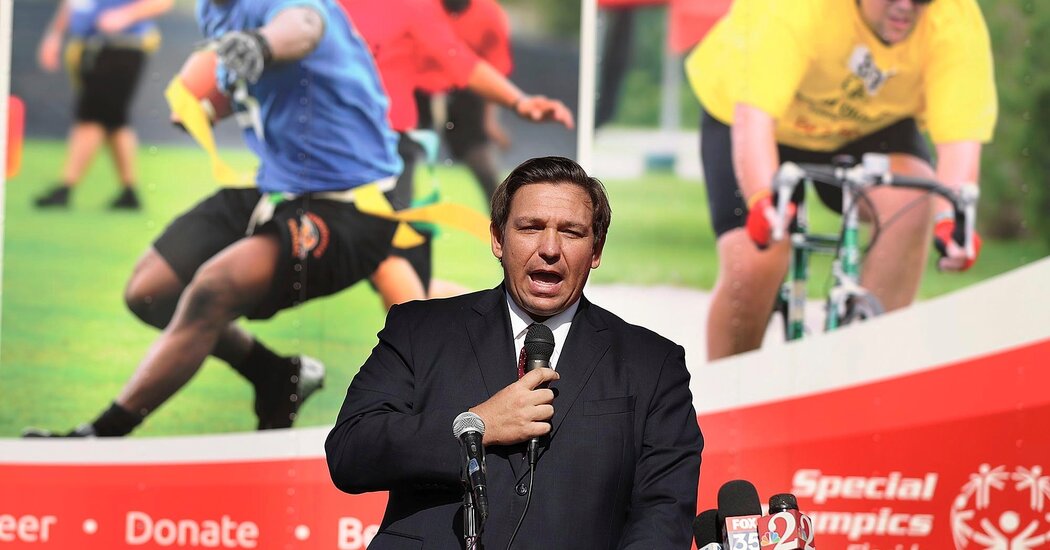
Special Olympics lifted its coronavirus vaccine requirement for athletes and staff members at its U.S.A. Games in Orlando, Fla., this weekend after Florida threatened a $27.5 million fine over the mandate.
In a letter to Special Olympics International on Thursday, state health officials said the vaccine requirement violated Florida law, which prohibits businesses and charitable organizations from requiring proof of vaccination against the coronavirus. The law allows the state’s health department to impose a $5,000 fine per individual who is asked to provide proof of vaccination, the letter said. About 5,500 participants are expected at the Games, which begin Sunday at Disney World and the ESPN sports complex and run through June 12.
Special Olympics will lift the mandate “as required” by the state, “based upon the Florida Department of Health’s interpretation of Florida law,” read a statement issued on Thursday by the organization. It added that those who had registered for the Games but could not participate because of the vaccine requirement would now have the option to attend, and that it was “making best efforts” to accommodate those participants.
Speaking at a news conference on Friday, Gov. Ron DeSantis said that Special Olympics’ vaccine requirement had no “connection” to competition and unfairly targeted a marginalized group.
“To go after Special Olympians, who all they wanted to do was compete, was not consistent with Florida law and it’s not the right thing to do,” he said. “Let them compete. We want everybody to be able to compete.”
Mr. DeSantis, a Republican who has long been defiant in his approach to the pandemic by refusing to impose restrictions and blocking vaccine and mask mandates, said that “a lot of these Special Olympians have had Covid by now — I mean, most people have had it — and to impose that mandate now in June of 2022 did not make sense.”
In order to compete, Special Olympians must have an intellectual disability, a cognitive delay or significant learning or vocational limitations. A 2021 study published in the New England Journal of Medicine found that having an intellectual disability was “the strongest independent risk factor” for contracting the virus and that people with such disabilities were at “substantially increased risk of dying” from Covid-19.